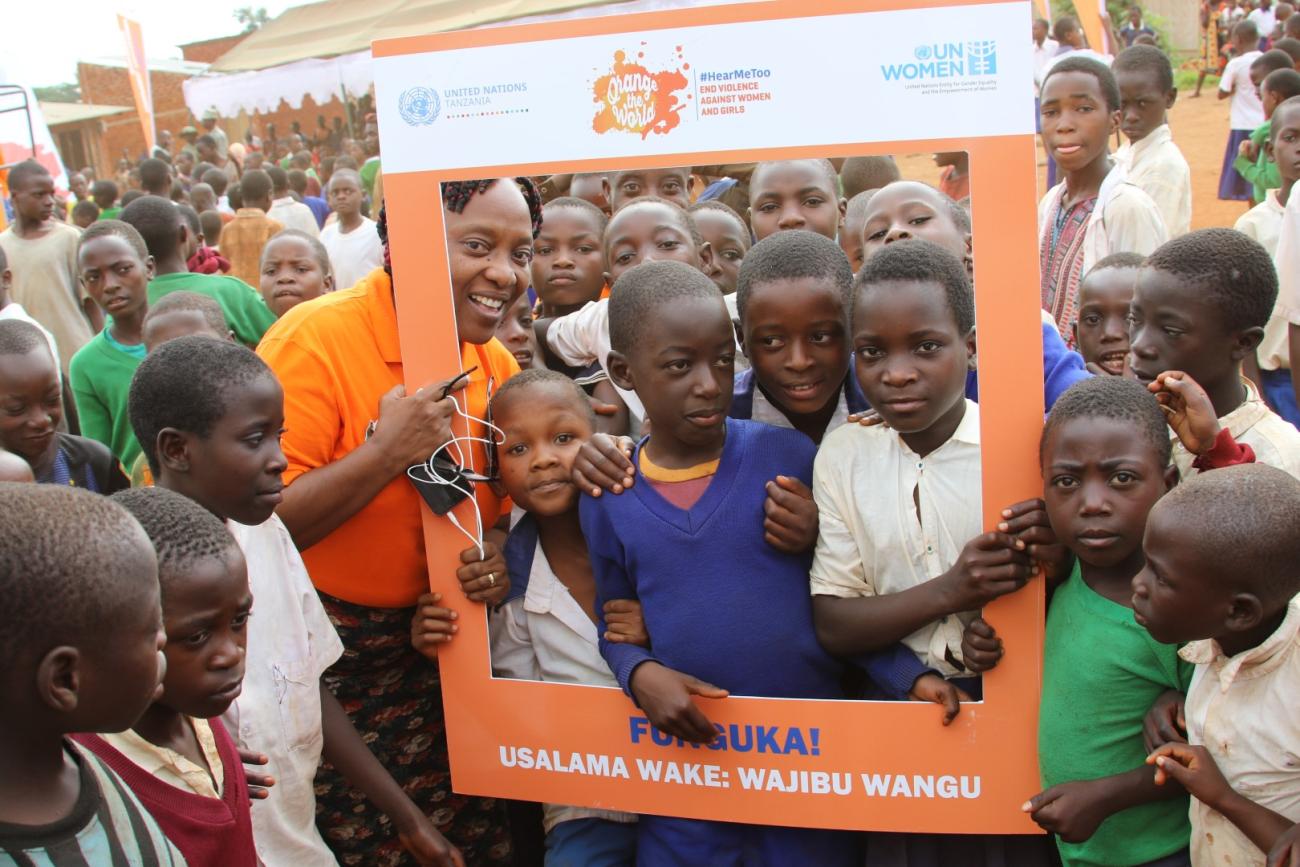16 Days of Activism Against Gender-Based Violence

Fighting to end violence against women and girls has become a way of life not only for the police but also for the men in communities in Kigoma.
In Tanzania, fighting to end violence against women and girls has become a way of life not only for the police and the courts of law but also for the men in communities such as those found in Kigoma.
According to Mr. Yassin Ally, the executive director of Kivulini Women’s Rights in Kigoma, violence against women and girls is slowly becoming a thing of the past, and even an embarrassment in some enlightened neighbourhoods. His organisation is partnering with UN Women in projects working to end violence against women and girls.
Kigoma is one of the areas that was this year selected for this year’s 16 Days of activism against based violence campaign to intensify efforts to protect its women and girls and to harness creation of peaceful communities.
A total 61 per cent of women, age 15-49 have experienced sexual, or emotional violence committed by their husband or partner; with 33.4 per cent suffering violence in the 12-months preceding the Demographic and Health Survey of 2015/16.
Through the generous funding from the Governments of Norway and Sweden, in April 2018, Kivulini Women’s Rights started implementing the one-year projects in Kasulu, Kakonko and Kibondo.
The initiative aims to build communities’ capacity to prevent and respond to violence. Following some months working with the local communities, Ally said the attitudes of people are starting to change, with some men also working as champions of peace.
“We are seeing some change. The male champions now view all forms of violence on women and girls as a betrayal to their families and the country’s commitment towards protecting the rights of women. They now believe that it is every woman’s right to live their lives to the fullest and in peace,” says Ally.
Following the partnership with UN Women, up to 300 community volunteers, including over 50 male activists have received some training that has initiated them into becoming champions against gender-based violence.
The campaign in Kigoma also targets the police, local government, health care workers, teachers and court officials in the ongoing community engagements aiming to improve service delivery.
Uniquely, this year’s 16 Days campaign sent a clear message that even men from the corridors of power are also onboard the fight to end gender-based violence.
The fact that the campaign was launched by the Prime Minister of the United Republic of Tanzania, Hon. Kassim Majaliwa Majaliwa, and the Second Vice President of Zanzibar, Ambassador Seif Ali Iddi in Zanzibar, demonstrates the commitment of the government.
Speaking during the 16 Days campaign launch in Zanzibar, the UN Women Representative in Tanzania, Hodan Addou welcomed the participation of senior government officials; the UN; the civil society; the private sector; and local communities in all the key activities. She explained this reflected the importance of pushing for gender equality in all sectors, that is if Tanzania is to make significant progress in achieving the Sustainable Development Goals.
“I believe through strengthened partnerships we can improve the quality of lives of many women and girls in Tanzania. This is important because a win for women and girls is a win for Tanzania,” Addou says.
She emphasized the need to create a more enabling environment, free of violence, alongside investing in girls’ education and increased development initiatives for all women to enable their full participation in the development of the country.





